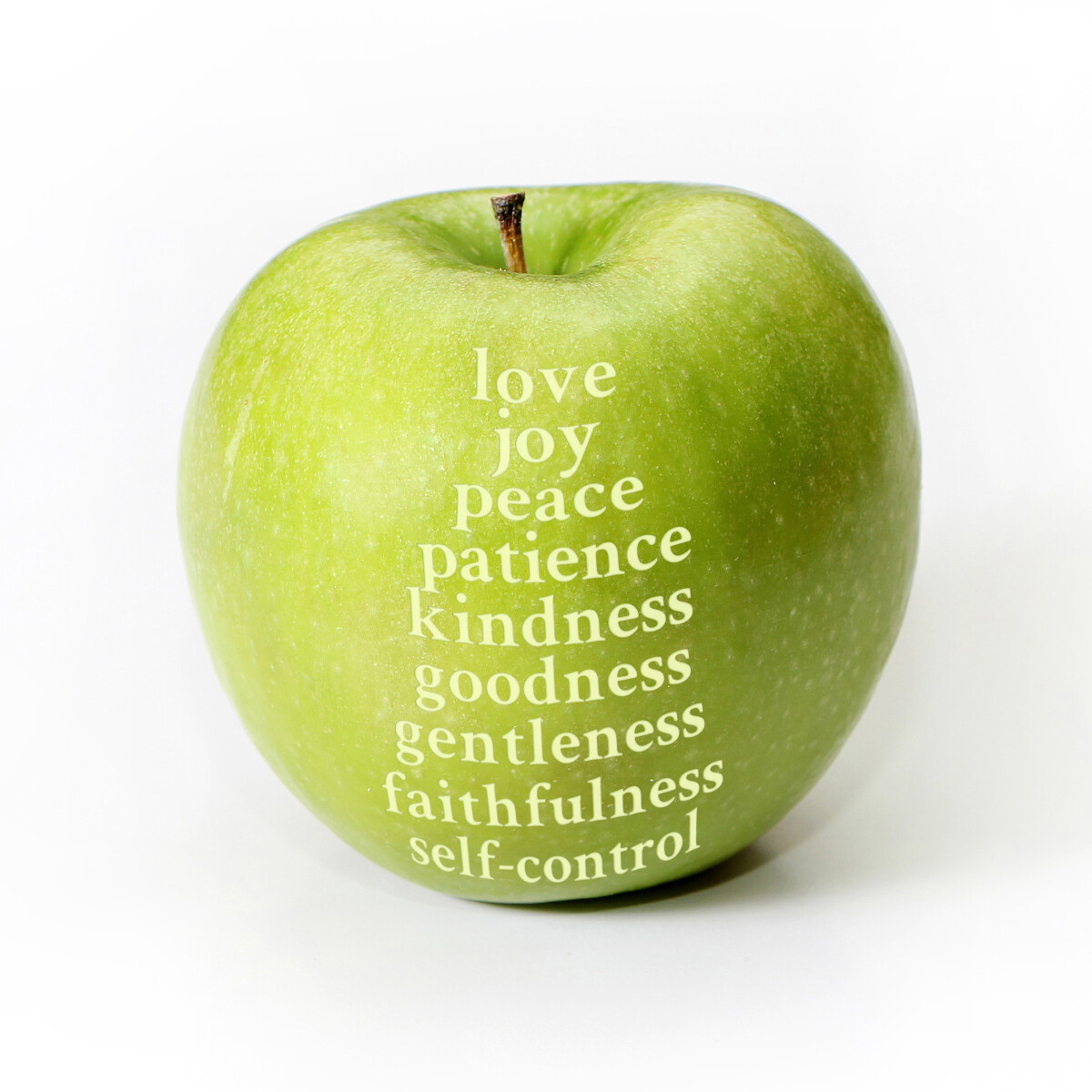June 28, 2023 by Robin Hall

I think that if the fruit of the Spirit had a popularity contest, self-control would be one of the losers (down there with patience…ain’t nobody got time for that). Self-control just sounds hard. Is there anything that cuts more directly against our culture and human nature than saying “no” to ourselves? And yet, there it is at the end of the list: love, joy, peace, patience, kindness, goodness, faithfulness, gentleness, and self-control (Gal. 5:22-23). But that’s not the only place we find it in Scripture. As we dig deeper, we find that self-control is not just about saying “no,” but it’s also about saying “yes.” Let’s briefly explore this dying virtue that is so desperately needed in our churches, families, and world.
Who is self-control for and what is at stake?
Titus 2 is a good place to start our search. The apostle Paul wrote this letter to his son in the faith Titus, who was left on the island of Crete so that he might set things in order for the new church there. In chapter 2, Paul tells Titus the expectations for various groups within the church. We see the word “self-controlled” used four times in these instructions (in the ESV). Titus is to teach the older men of the church to be self-controlled (verse 2) and to have the older women instruct the younger women to be self-controlled (verse 5). In these first two cases, self-control is listed among a number of other desirable qualities. But in verse 6, Titus is told to “urge” the younger men to be, you guessed it, self-controlled. And apparently, for the young men, this is a hard enough job that this is their only instruction. Just one job, guys: self-control. So we see that self-control was the expectation for old and young, men and women. It’s for everyone, not just leaders or the spiritual elite.
So what is at stake? If we look at the context, we will notice this in Titus 1:12: “One of the Cretans, a prophet of their own, said, ‘Cretans are always liars, evil beasts, lazy gluttons.’” In Crete, there was clearly a lack of self-control, specifically in the area of gluttony and speech. The new believers there would have been saved out of this lifestyle, and their new lives needed to look different.
What about our context? Do we live in a culture that lacks self-control? No doubt! And so, while all Christians are called to live lives of self-control, when you are surrounded by a culture that only encourages self-indulgence, it will be an uphill battle, yet a necessary climb for Christians called to be the salt of the earth and the light of the world. This battle will take a church — young and old, men and women— helping one another.
But self-control isn’t just an important component of the church’s gospel witness to the world, it is also important for our individual lives. Proverbs 25:28 tells us that a person without self-control “is like a city broken into and left without walls.” This analogy shows us that a lack of self-control puts us at risk and leaves us open to attack from the enemy. In our culture, we like to talk about boundaries, but we usually mean drawing lines to protect ourselves from others. And that is a valid conversation. But what about boundaries that I draw to protect others and myself from me and my destructive behaviors? How often do we think and pray about what limits we should put on ourselves and our behaviors?
One example of this is Daniel and his friends when they were captured and taken to live in Babylon. Daniel 1:8 says that Daniel “resolved” that he would not defile himself. He drew lines around himself before temptation came.
Paul is another good example. In 1 Corinthians 9:24-27, he uses the illustration of an athlete who exercises self-control to win a race, then says of himself: “So I do not run aimlessly; I do not box as one beating the air. But I discipline my body and keep it under control, lest after preaching to others I myself should be disqualified." In context, Paul is using the athletic metaphor to describe the physical challenges he regularly faces in his missionary work. But notice his single-minded devotion to pleasing the Lord in all he does. He’s disciplined, self-controlled, determined, and spiritually prepared. It takes all of his energy to run the race God has called him to run. Are we called to anything less?
What exactly is self-control and how do I get it?
With all of this in mind, we can define self-control as control or discipline of oneself for the sake of godliness. 1 Timothy 4:7-8 says to “train yourself for godliness; for while bodily training is of some value, godliness is of value in every way…for to this end we toil and strive…”
And yet, the irony about self-control, is that we cannot do it ourSELVES. There is nothing in our natural flesh that is able to be controlled, as you’ve likely discovered. But Galatians 5:22-23 gives us hope: the fruit of the Spirit is self-control. When we trust Christ by faith, His Spirit comes to live in us and gives us the ability to live self-controlled, godly lives in this present age (Titus 2:12). But this requires daily dying to self, walking by faith, and walking in step with the Spirit. We must know God’s will and Word so that we know how to say “yes” to what is good and say “no” to what is evil. Then by faith, we obey what God says by His power. We can do it because He can do it in us.
Key Areas of Self-Control
So what should we toil and strive for? In what areas are we to be self-controlled and godly? From Titus 2 and a couple of other passages, I want to point out four areas: what we put into our bodies, what we put on our bodies, what we do with our bodies, and what comes out of our mouths.
What We Put into Our Bodies
Titus 2:3 warns us not to be “slaves to much wine.” Proverbs 20:1 also warns us about alcohol: “Wine is a mocker, strong drink a brawler, and whoever is led astray by it is not wise.” And Proverbs 23 describes in vivid detail what addiction to it looks like. Elsewhere Paul tells us not to be slaves to anything (1 Cor. 6:12). So this applies to any addiction or over-indulgence. Proverbs also speaks against gluttony—a continual overindulgence in food (23:20-21). So whether it be wine, beer, prescription drugs, illegal drugs, caffeine, ice cream, or cake… Are you addicted, or enslaved? Or put another way, where do you turn for comfort other than the Lord? Do you turn to food or drink or other substances to medicate your emotional pain?
What We Put on Our Bodies
In 1 Timothy 2:9, women are instructed to use “modesty and self-control” with respect to how they dress. The focus for women, and for all of us, should be on a godly lifestyle rather than gaudy or seductive attire. When people look at me, does my lifestyle point others to Christ? Or do I want my appearance and actions to bring attention to myself?
What We Do with Our Bodies
Paul also uses the word “self-control” when he instructs believers to avoid sexual misconduct. No surprise there. Put even more strongly, he says in 1 Corinthians 6:18-20 to “flee from sexual immorality. Every other sin a person commits is outside the body, but the sexually immoral person sins against his own body. Or do you not know that your body is a temple of the Holy Spirit within you…You are not your own, for you were bought with a price. So glorify God in your body.” Sex outside of marriage and lustful thoughts are off-limits. We aren’t told to test our limits and see how well we hold up to the temptation. We are told to run away, like Joseph from Potiphar’s wife (Gen. 39).
What Comes Out of Our Mouths
Titus 2:3 also instructs us not to be “slanderers.” To slander is to make false statements about someone else. If you will remember, the Cretans were known to be liars. But the Christians at Crete were called to a higher standard—to speak the truth about others. The Bible has much to say about what should come out of our mouths, but Ephesians 4:29 sums it up well: “Let no corrupting talk come out of your mouths, but only such as is good for building up, as fits the occasion, that it may give grace to those who hear.” THINK before you speak: Are my words true, helpful, inspiring, necessary, or kind?
Say “Yes!”
So a life of self-control looks like saying “no” to drunkenness, gluttony, addiction, slander, and words that tear others down. We say “no” to immodesty, self-aggrandizement, sexual misconduct, and lust. But what should we say “yes” to instead? Ephesians 5:15-20 is a great place to start: “Look carefully then how you walk, not as unwise but as wise, making the best use of the time, because the days are evil. Therefore do not be foolish, but understand what the will of the Lord is. And do not get drunk with wine, for that is debauchery, but be filled with the Spirit, addressing one another in psalms and hymns and spiritual songs, singing and making melody to the Lord with your heart, giving thanks always and for everything to God the Father in the name of our Lord Jesus Christ.”
We say “yes” to:
- Walking the wise path (verse 15)
- Using our time well (verse 16)
- Understanding God’s will (verse 17)
- Being controlled by the Holy Spirit (verse 18)
- Speaking God-honoring words to God and others (verses 19-20)
Finally, be encouraged by Titus 2:11: “For the grace of God has appeared, bringing salvation for all people, training us to renounce ungodliness and worldly passions, and to live self-controlled, upright, and godly lives in the present age.” God’s grace is here. His grace is teaching us to say “no” and to say “yes” for our joy and for His glory.


